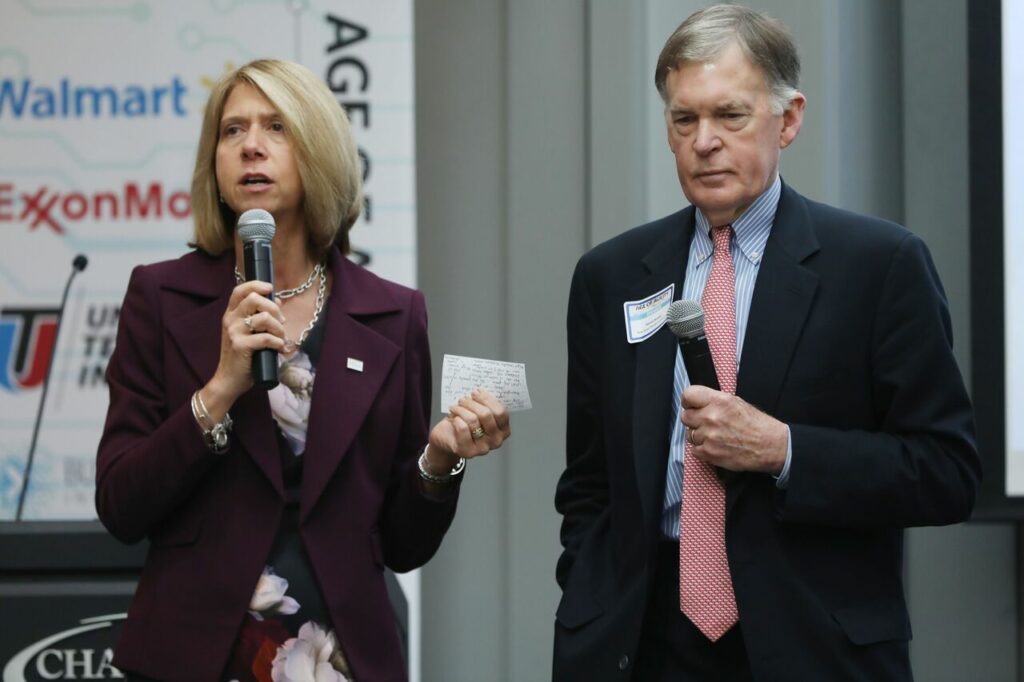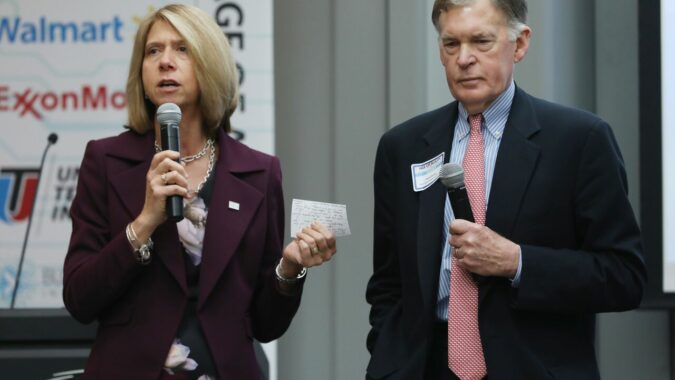Over 100 New Jersey educators, business leaders, policymakers, and stakeholders gathered at the Chauncey Conference Center Jan. 10 for the Age of Agility Summit. Panelists and attendees discussed how rapid innovations in technology——are causing radical shifts in the skills needed in our modern workforce and what implications those shifts may have on the way we deliver education.
Hosted by JerseyCAN and America Succeeds, the Summit aimed to host a collaborative, solutions-oriented conversationabout how to address current skills gaps and how to best prepare our students for the jobs of the future.
The summit began with a keynote address from Carl Van Horn, Director of the John J. Heldrich Center for Workforce Development at Rutgers University and Dennis Bone, Director for the Feliciano Center for Entrepreneurship at Montclair State University. Van Horn emphasized the need for collaborative solutions to labor challenges:

“In the early decades of the 21st century, employees, job applicants, and students are struggling to navigate a complex and fast changing economy. Business, government, and education leaders must embrace transformative policies that meet the challenges of globalization and technology-driven change. Our nation must create more effective workforce and education policies that enable all Americans to succeed throughout their working lives.”
Business leaders from Verizon, IBM, Siemens, Prudential, and Unex Manufacturing spoke on a Dynamic Workforce panel and explained how employee recruitment and training has evolved in the age of agility. Martha Delehanty, Senior Vice President of Human Resources for Verizon, explained how the company is leveraging technology, such as virtual reality, to help train new employees. Larry O’Connell, Vice President of Global Technical Leadership & Global TechLine at IBM, discussed the P-TECH model, an opportunity for students to earn a no-cost associate’s degree in applied STEM disciplines in six years.
An Education Innovation Panel panel also highlighted how higher education, K-12 education, and private providers are innovating course offerings, pedagogy, and are providing more hands-on work experiences through internships and apprenticeships. Steve McElfresh, President of the Bloomfield Campus of Universal Technical Institute, highlighted that 70% of modern workforce jobs require a competency-based credential. Drew University, a liberal arts college, has adapted to this new trend, offering students the opportunity to receive an industry credential through their new program Launch Your Life.
Giving real-world experiences to students and workers to gain work experience is also a priority of Senator Theresa Ruiz, the Chairwoman of the Senate Education Committee. This past fall, Senator Ruiz moved a package of apprenticeship bills, designed to create clear apprenticeship pathways and increase the number of underrepresented populations in high-demand industries.
The importance of education adaptation in this age of agility was underscored by Patricia Morgan, Executive Director of JerseyCAN. “The job of our educational institutions is to prepare students for life success in the world outside of the classroom,” she noted. “With the rapid changes that technology has sparked in our workforce, we must consider how our classrooms can become agile and innovative to best prepare students for the workplace of the future.”
The event ended with a call to action from the Chamber of Commerce President and CEO Tom Bracken and Michele Siekerka, President and CEO of NJBIA. Despite the challenges, both expressed optimism about the future:
“New Jersey has a great history of creativity and business innovation. Quality educational institutions can unlock these talents, and businesses can provide positive pathways for students to pursue. We’re excited to deepen the connections made here today, and to continue sharing our best ideas and resources to create strong workforce and education systems for our state.”
Event photos and social media from the event are available on Facebook and Twitter.




